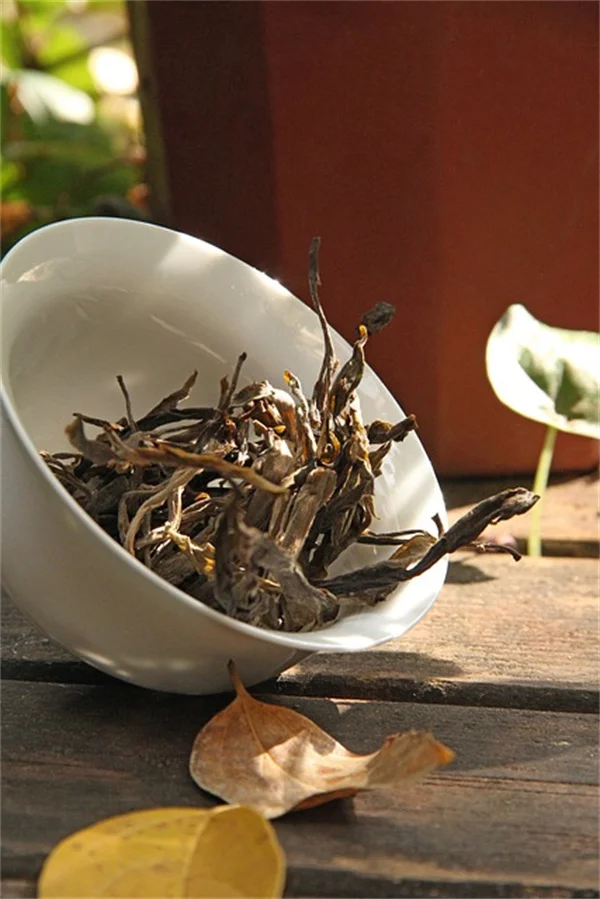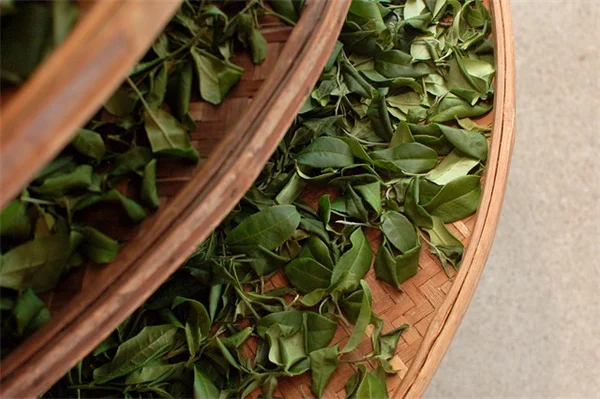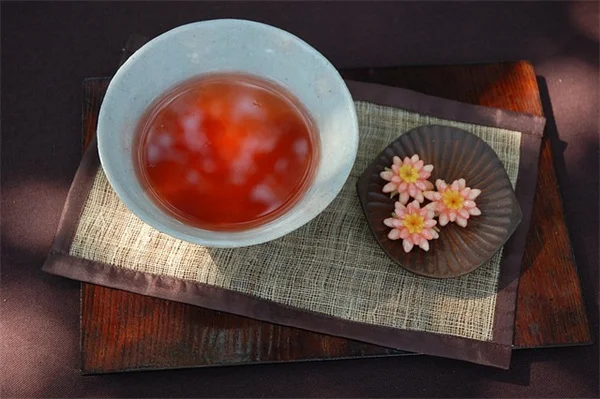How did Mo Heart learn to love herself in a world obsessed with unrealistic beauty standards? The answer is simple yet powerful: she became her own role model. As a Black, queer drag queen with vitiligo, Mo faced constant messages telling her she wasn't enough - until she rewrote the script. I'm going to show you exactly how this RuPaul's Drag Race legend transformed self-doubt into unshakable confidence - and how you can do it too. From childhood struggles with representation to building her own beauty empire, Mo's story proves one thing: true beauty begins when you stop comparing yourself to others.
E.g. :5 Surprising Health Benefits of Golf for Seniors (Backed by Science)
- 1、Mo Heart’s Journey to Self-Love
- 2、The Mental Health Toll of Beauty Standards
- 3、Fighting Back Against Unrealistic Beauty Norms
- 4、Mo’s Blueprint for Unshakable Self-Esteem
- 5、The Power of Authenticity in Self-Love
- 6、Building Your Personal Support System
- 7、Practical Tools for Daily Confidence
- 8、Navigating Setbacks with Compassion
- 9、FAQs
Mo Heart’s Journey to Self-Love
From Drag Race Star to Self-Acceptance Advocate
You know Mo Heart from RuPaul’s Drag Race and All Stars, but she’s so much more than a fierce competitor. She’s a recording artist, entrepreneur with her own beauty brand MoBeauty, and now, a voice for self-love. Growing up in the ’90s, Mo didn’t see herself in the ads or TV shows that defined beauty. Pamela Anderson’s Baywatch look was everywhere—but where was the representation for someone like her?
Mo recently spoke at Advertising Week New York about intersectional beauty, and here’s the truth she shared: “You have to become your own role model.” That means looking in the mirror and saying, “You are beautiful, smart, and resilient.” Sounds simple, but in a world flooded with unrealistic standards, it’s revolutionary.
Why Representation Matters (And What Happens When It’s Missing)
Ever scroll through Instagram and immediately feel worse about yourself? Mo gets it. Ads, influencers, and media constantly tell us what “beauty” should look like—and if you don’t fit that mold, it’s exhausting. For Mo, as a femme Black kid with vitiligo, the message was clear: You don’t belong.
But here’s the kicker: her mom changed the game. When Mo pointed to light-skinned models in Revlon ads, her mom slid her finger to a dark-skinned woman and said, “She’s pretty too.” That small moment? It was everything. Representation isn’t just about seeing yourself—it’s about being told you’re worthy.
The Mental Health Toll of Beauty Standards
 Photos provided by pixabay
Photos provided by pixabay
How Media Messaging Shapes Our Self-Worth
Think about it: Who decides what’s “beautiful”? According to therapist Heather Zayde, it’s often Eurocentric ideals—thin, light-skinned, tall—that dominate. And when you don’t match up? Anxiety, depression, and internalized shame creep in. Worse, entire industries profit off making us feel “not enough.”
Here’s a wild stat: Millions are spent yearly on diets and beauty products to force people into a narrow standard. But Mo’s advice? “Step back.” Unfollow accounts that make you feel bad. Skip shows that glorify one body type. Your mental health will thank you.
Breaking Free from Toxic Comparisons
Ever caught yourself thinking, “Why don’t I look like that?” Mo’s been there. Working at the mall, she saw zero Black faces in ads—just “thin white bodies” that didn’t reflect her reality. The result? Weight gain, self-doubt, and a cycle of feeling “less than.”
But guess what? You don’t have to play that game. Mo’s mantra? “Affirm yourself daily.” Write down what you love about your body. Surround yourself with friends who lift you up. And if social media drains you? Take a 2-hour break. Your confidence isn’t worth sacrificing for likes.
Fighting Back Against Unrealistic Beauty Norms
Small Shifts That Make a Big Difference
Ready to rebel? Start with your wallet. Stop buying from brands that make you question your worth. Ask: “Does this product actually make me happy, or is it just feeding insecurity?” (Spoiler: That “miracle” cream won’t fix self-esteem.)
| Toxic Message | Healthy Alternative |
|---|---|
| “You need to lose weight to be attractive.” | “Eat foods that energize you—not shrink you.” |
| “Your natural hair isn’t professional.” | “Your curls are powerful. Rock them.” |
 Photos provided by pixabay
Photos provided by pixabay
How Media Messaging Shapes Our Self-Worth
Sure, brands now check diversity boxes—“Add a Black model! A plus-size influencer!”—but Mo calls BS. Many still cater to the same white, middle-class “mainstream.” Take The Bachelor: Diverse contestants often feel like tokens, not equals.
But there’s hope. Athleisure brands now feature curvy models outside the “plus-size section.” Progress? Yes. Enough? Not even close. As Mo says, “Inclusion shouldn’t be a trend—it should be the standard.”
Mo’s Blueprint for Unshakable Self-Esteem
Affirmations That Actually Work
Mo’s secret weapon? Daily self-talk. Instead of criticizing her body, she says: “I am whole. I am desired.” Simple? Yes. Powerful? Absolutely. Your words shape your reality. So why not make them kind?
And hey, some days are hard. That’s when Mo texts a friend: “Girl, I’m going through it!” Because self-love isn’t about going solo—it’s about leaning on your squad when doubt creeps in.
The Ultimate Truth: It Starts and Ends with You
At 36, Mo’s finally free from chasing approval. Her advice? “Heal your younger self.” Imagine telling your 12-year-old version: “You’re enough—no bullshit required.” That’s the magic of self-acceptance.
Mo’s journey proves one thing: Confidence isn’t about fitting in. It’s about owning what makes you different. So next time you feel “not enough,” remember her words: “It starts with you and finishes with you.” Now go slay.
The Power of Authenticity in Self-Love
 Photos provided by pixabay
Photos provided by pixabay
How Media Messaging Shapes Our Self-Worth
You've probably heard the phrase "fake it till you make it," but when it comes to self-love, that approach can backfire. Pretending to be confident when you're crumbling inside creates emotional whiplash. I learned this the hard way when I tried to "act like Mo Heart" during a rough patch - it only made me feel more disconnected from myself.
Here's what works better: acknowledge your insecurities while still showing up. When Mo talks about her vitiligo, she doesn't pretend the stares don't hurt. Instead, she says, "Yes, I notice when people look. And yes, I still choose to wear this fabulous outfit." That's real confidence - not the absence of doubt, but the courage to move forward anyway.
The Social Media Trap We All Fall Into
Ever posted a "perfect" selfie while feeling miserable? You're not alone. Studies show 68% of people admit to curating unrealistic online personas. But here's the kicker - when we project false confidence, we actually reinforce our own insecurities.
Mo's approach? She'll post an unglamorous gym selfie with the caption: "Sweaty, no makeup, and loving myself anyway." This small act of vulnerability does two powerful things: gives others permission to be real, and reminds herself that worth isn't tied to perfection. Try it this week - share one unfiltered moment and notice how it feels.
Building Your Personal Support System
Finding Your Tribe in Unexpected Places
You might think self-love is a solo journey, but the right community accelerates growth. When Mo first started in drag, she found mentors at local LGBTQ+ centers who saw her potential before she did. These weren't famous people - just everyday folks willing to say, "I believe in you" when she couldn't believe in herself.
Where can you find your people? Book clubs, volunteer groups, even online forums about your hobbies. The key is looking for spaces where you feel seen, not just where you think you should belong. I met my confidence-boosting crew at a terrible painting class - we bonded over how awful our art was!
When to Walk Away from Toxic Relationships
Here's an uncomfortable truth: some friendships drain your self-esteem. That coworker who always "playfully" critiques your outfit? The relative who comments on your weight? Mo calls these "energy vampires" - they suck the joy from your progress.
| Red Flag | Healthy Response |
|---|---|
| "You'd be prettier if..." | "I'm happy with how I look, thanks." |
| "I'm just being honest!" (about your appearance) | "I prefer kindness over 'honesty' about my body." |
Setting boundaries isn't rude - it's self-care. Start small: change the subject when conversations turn critical, or limit time with consistently negative people. Your future self will thank you.
Practical Tools for Daily Confidence
Creating Rituals That Ground You
Mo starts each show with a specific routine: three deep breaths while repeating her affirmations. This isn't woo-woo stuff - it's science. Rituals create neural pathways that signal safety to your brain. Don't have time for elaborate routines? Neither do I!
Try these micro-rituals:- Before checking your phone in the morning, say one thing you appreciate about yourself- While brushing your teeth, stand in a power pose for 20 seconds- After work, jot down one small win from the day
Why Clothing Choices Matter More Than You Think
Can an outfit really change how you feel? Absolutely. Mo calls certain looks her "armor pieces" - garments that make her stand taller (literally, in heels!). But here's the twist: it's not about dressing for others' approval.
Ask yourself: "Does this make me feel like my best self?" If the answer's yes, wear it proudly. If not, save it for another day. I have a sequin jacket that's completely impractical for grocery shopping - but when I need a confidence boost, you better believe I'm rocking it in the produce aisle.
The Myth of Linear Progress
We imagine self-love as an upward climb, but real growth looks more like a rollercoaster. Even Mo has days where old insecurities creep in. The difference? She doesn't beat herself up about it. Progress isn't about never falling - it's about getting up faster each time.
Next time you have a confidence crash, try this: imagine comforting your best friend. You wouldn't say, "You're failing at self-love!" You'd say, "This is hard, and you're still growing." Now say that to yourself in the mirror. Feels different, right?
When Comparison Steals Your Joy
Here's a question that changed everything for me: "What if someone's beauty doesn't take away from yours?" We often treat attractiveness like pie - if someone else has a big slice, there's less for us. But that's nonsense!
Mo reframes it beautifully: "Admiring others' light doesn't dim your own." When you see someone gorgeous, try thinking, "Good for them! And good for me too!" This mental shift takes practice, but it makes life so much more joyful.
E.g. :Everything starts with YOU. When you treat yourself with love and ...
FAQs
Q: How did Mo Heart's childhood experiences shape her views on beauty?
A: Growing up in the 90s, Mo Heart faced a media landscape that completely excluded people who looked like her. Every Abercrombie ad and Baywatch episode screamed one message: beauty meant being thin, white, and straight. As a femme Black kid with vitiligo, Mo internalized these toxic standards - until her mom stepped in. That pivotal Revlon ad moment, where her mother pointed to a dark-skinned model saying "She's pretty too," planted the first seed of self-acceptance. Today, Mo credits these early struggles for her mission to redefine beauty standards through drag and her MoBeauty brand.
Q: What specific strategies does Mo recommend for combating negative beauty standards?
A: Mo Heart's playbook for self-love is refreshingly practical. First, curate your social media feed - unfollow accounts that make you feel inadequate. Second, practice daily affirmations like "I am whole, I am desired" (yes, out loud!). Third, build a support squad - when Mo feels down, she texts friends "Girl, I'm going through it!" Most importantly, she emphasizes becoming your own role model when mainstream media fails you. These aren't quick fixes but lifelong habits that helped Mo transform from self-doubting kid to confident queen.
Q: How do unrealistic beauty standards actually harm mental health?
A: Therapist Heather Zayde explains the damage clearly: constant exposure to Eurocentric beauty ideals fuels anxiety, depression, and self-hatred when we can't measure up. The beauty industry spends millions convincing us we need fixing - through diets, creams, and procedures. For marginalized groups like the LGBTQ+ community, this pressure is even worse. Mo experienced this firsthand, gaining weight and struggling with self-image while working in malls surrounded by ads featuring only thin white models. The mental toll? Exhaustion from constantly feeling "less than."
Q: Has media representation truly improved for diverse communities?
A: Mo Heart calls out the "checklist diversity" many brands practice today - adding one Black or plus-size model to appear inclusive while still catering to white audiences. Shows like The Bachelor tokenize diverse contestants rather than valuing them equally. While some progress exists (like athleisure brands featuring curvy models), Mo stresses that true inclusion means centering marginalized voices, not just using them as props. As she says: "Inclusion shouldn't be a trend - it should be the standard."
Q: What's the most important lesson from Mo Heart's self-love journey?
A: At 36, Mo's breakthrough realization was this: confidence comes from within, not external validation. After years of chasing approval, she discovered that losing weight, clearing her skin, and finding happiness all stemmed from one shift - learning to love herself first. Her message to her younger self (and to us) is powerful: "You don't have to go through the same bullshit I went through." Whether through daily affirmations, supportive friendships, or rejecting toxic media, Mo proves that self-acceptance is the ultimate rebellion against narrow beauty standards.



Discuss